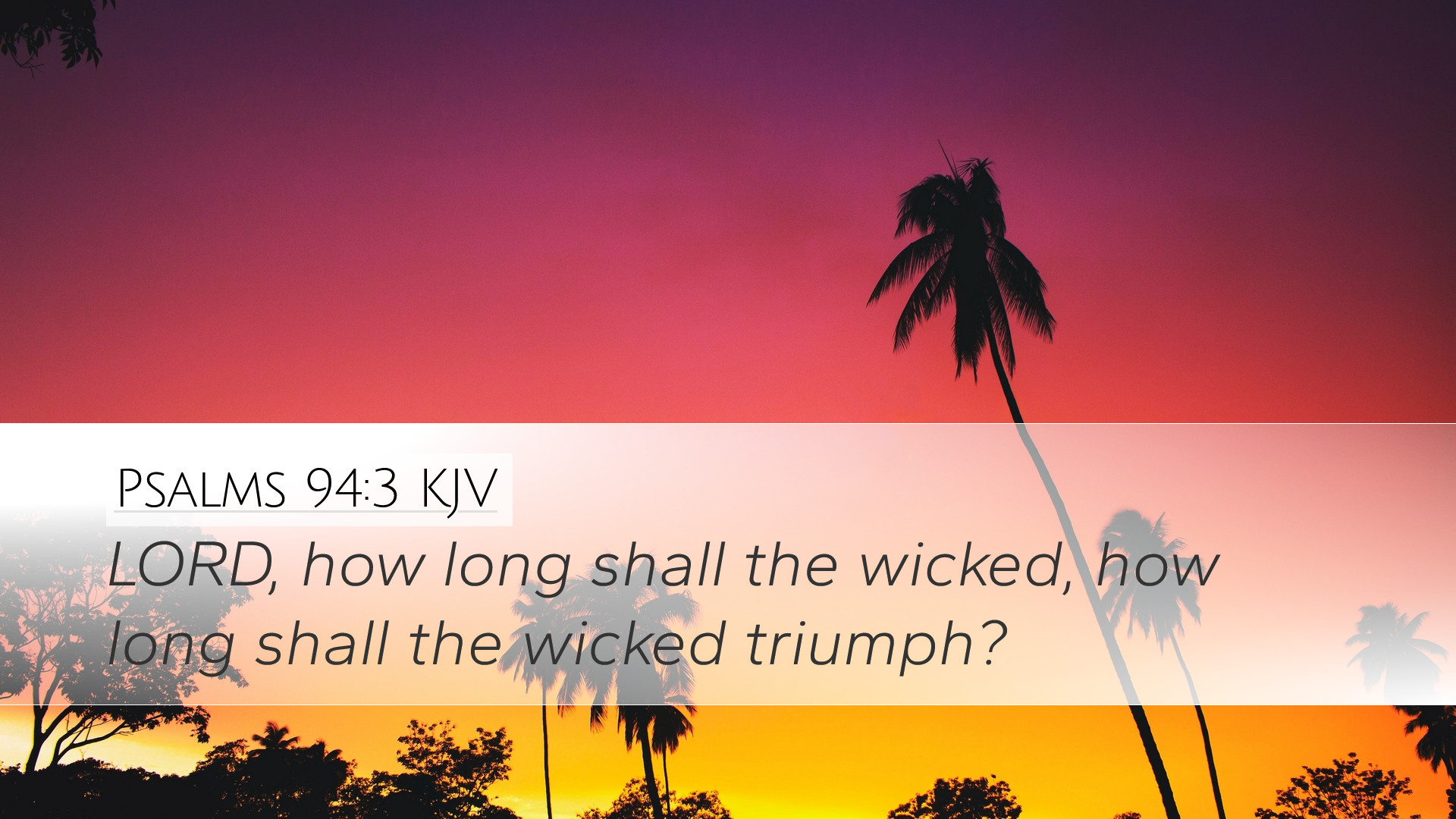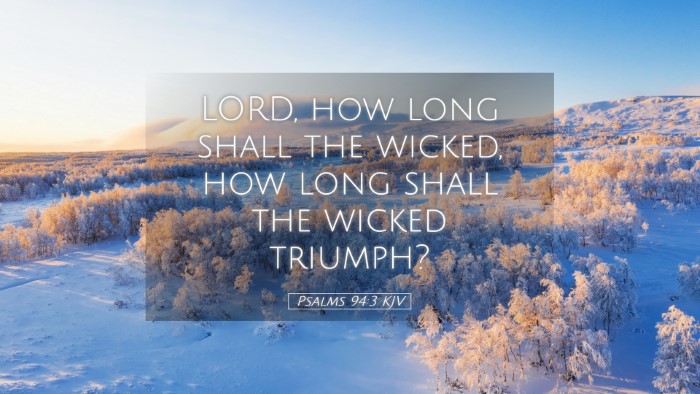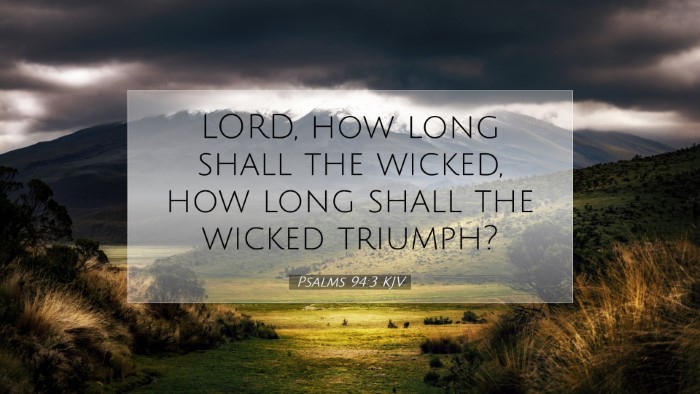Bible Commentary on Psalms 94:3
Verse: "LORD, how long shall the wicked, how long shall the wicked triumph?" (Psalm 94:3)
Introduction
The Psalmist expresses a profound sense of urgency and despair in this verse. The repetition of the phrase "how long" indicates not only a cry for justice but also a yearning for divine intervention against wickedness. The tone conveyed is one of lamentation and a plea for God’s action in a world where the wicked seem to prosper.
Contextual Background
Psalms 94 is one of the royal psalms traditionally understood to address the tension between the righteous and the wicked. The historical context often points to periods of national distress for Israel, where the faithful found themselves overwhelmed by adversaries. This psalm serves both a liturgical and personal purpose, allowing the faithful to express frustrations while simultaneously invoking God’s character as a just judge.
Insights from Matthew Henry
Henry emphasizes the emotional intensity behind the plea found in this verse. He notes that the speaker's despair arises from witnessing the success and apparent invincibility of the wicked against the backdrop of God’s chosen people. Henry describes the wicked as “triumphant,” suggesting their arrogance and lack of accountability.
He connects this external observation to a deeper spiritual dilemma—how long must the faithful endure such suffering? This rhetorical question reflects not only personal anguish but also collective frustration, as the righteous community seeks clarity and relief from ongoing afflictions.
Albert Barnes' Analysis
Barnes offers a critical examination of the term “triumph.” He suggests that the success of the wicked is temporary, a significant aspect often overlooked. In his commentary, he articulates that the apparent prosperity of the wicked can lead believers into doubt, prompting the question of God’s justice.
Barnes asserts that this lamentation mirrors the voices of many throughout biblical history, echoing similar sentiments found in Job and the Prophets. This pattern reveals a constant divine principle: whilst the wicked may triumph temporarily, divine justice will ultimately prevail. Barnes encourages readers to see this cry not just as a sign of despair but a potent reminder to trust in God’s ultimate justice.
Reflections from Adam Clarke
Clarke’s commentary provides a theological reflection on the nature of God in relation to human suffering. He posits that the juxtaposition of the righteous and the wicked serves as a testing ground for faith. His insights reveal a significant aspect: the qualifier “how long” suggests a confidence that God will eventually act. This phrase implicitly acknowledges God’s sovereignty over time and circumstances.
Clarke also brings attention to the emotional state of the Psalmist, who exemplifies a formative reaction to the injustices of the world. He asserts that struggles with the existence of evil and suffering are valid, portraying the Psalmist’s query as a dynamic part of faith that must wrestle with the implications of God’s timing and action.
Theological Implications
This verse serves as a poignant reminder of the human condition, embodying themes of injustice, suffering, and the yearning for divine intervention. It raises critical questions about God’s presence in the face of evil. The repeated inquiry highlights the tension between sight and faith, suggesting that while the wicked may appear successful, the believer is called to trust in God’s plan and timing.
Furthermore, the concept of divine justice invites theological reflection on the nature of God as involved and responsive to human suffering. This tension leads to profound discussions on theodicy and the character of God, who, while allowing for human freedom, will ultimately bring about justice.
Practical Applications for Believers
- Encouragement in Suffering: Believers can find solace in knowing they are not alone in their struggles against the perceived triumphs of wickedness. The Psalmist’s cry echoes across time, validating the experiences of many.
- Call to Vigilance: The lamentation serves as a call for awareness of societal injustice, challenging believers to remain vigilant and responsive rather than becoming complacent in the face of evil.
- Strengthening Faith: This verse can bolster faith in God’s ultimate justice, encouraging believers to trust in His perfect timing and moral governance, even when circumstances seem dire.
- Prayer and Intercession: The verse can inspire a practice of earnest prayer, not merely for personal relief but for the collective plight of those suffering injustice.
Conclusion
Psalms 94:3 invites believers into a rich tapestry of lament, faith, and the promise of divine justice. The insights from various commentaries depict the struggle against wickedness as not only a communal experience but also an individual journey of faith. As we meditate on this verse, we are reminded to express our frustrations to God, entrusting Him with our concerns while remaining steadfast in our faith. The ultimate victory of righteousness over wickedness is assured, offering hope and perspective amid trials.


